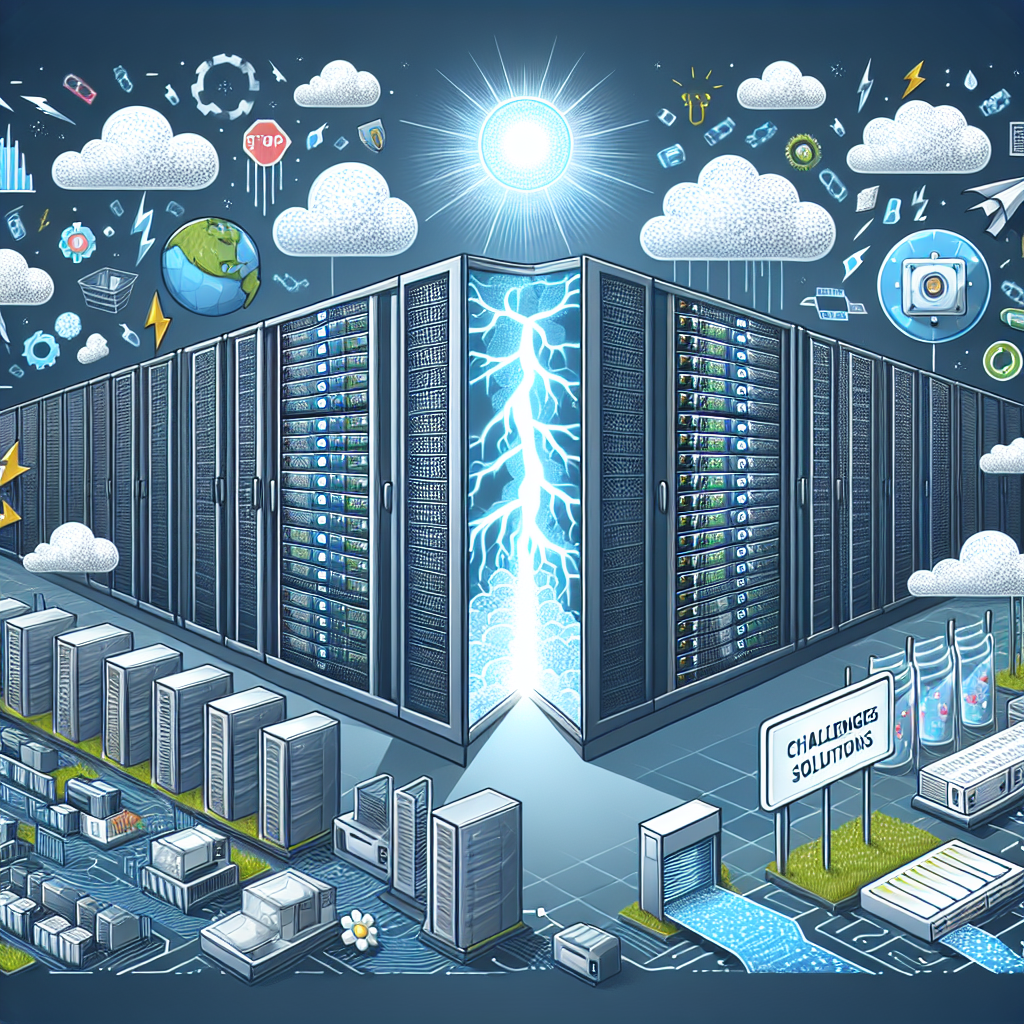Your cart is currently empty!
Challenges and Solutions for Achieving Data Center Operational Efficiency

Data centers play a crucial role in today’s digital world, serving as the backbone for storing, processing, and transmitting vast amounts of data. As the demand for data continues to grow rapidly, data center operators are faced with the challenge of ensuring operational efficiency to meet the increasing workload requirements while minimizing costs and environmental impact. In this article, we will discuss the challenges faced by data center operators and explore potential solutions for achieving operational efficiency.
Challenges:
1. Energy consumption: Data centers are notorious for their high energy consumption, leading to high operational costs and environmental impact. The cooling systems and power infrastructure required to maintain optimal operating conditions for servers and networking equipment contribute significantly to energy usage.
2. Space constraints: Data centers are often limited by physical space, especially in urban areas where real estate prices are high. This poses a challenge for data center operators to maximize space utilization while ensuring efficient airflow and cooling.
3. Legacy infrastructure: Many data centers are built on legacy infrastructure that may not be designed for optimal efficiency. Upgrading or retrofitting existing systems can be costly and disruptive to operations.
4. Scalability: With the exponential growth of data, data center operators must ensure that their infrastructure can scale to meet increasing demands without compromising performance or efficiency.
Solutions:
1. Energy-efficient cooling: Implementing energy-efficient cooling systems, such as hot aisle/cold aisle containment, free cooling, and liquid cooling, can help reduce energy consumption and lower operational costs. Using renewable energy sources, such as solar or wind power, can also help reduce the carbon footprint of data centers.
2. Virtualization and consolidation: Virtualizing servers and storage resources can help improve space utilization and reduce the number of physical servers required, leading to cost savings and improved efficiency. Consolidating servers and networking equipment in a unified infrastructure can also help streamline operations and reduce complexity.
3. Modular design: Adopting a modular design approach allows data center operators to scale their infrastructure in a flexible and cost-effective manner. Modular data center solutions, such as prefabricated data center modules, can be rapidly deployed to meet changing workload requirements.
4. Monitoring and automation: Implementing advanced monitoring and automation tools can help data center operators optimize resource utilization, identify inefficiencies, and proactively manage power and cooling systems. Using artificial intelligence and machine learning algorithms can help predict and prevent downtime, optimize workload distribution, and improve overall operational efficiency.
In conclusion, achieving data center operational efficiency requires a holistic approach that addresses energy consumption, space constraints, legacy infrastructure, and scalability challenges. By implementing energy-efficient cooling systems, virtualization and consolidation strategies, modular design solutions, and advanced monitoring and automation tools, data center operators can optimize performance, reduce costs, and minimize environmental impact. Embracing innovation and sustainable practices is key to meeting the growing demands of the digital economy while ensuring a sustainable future for data centers.

Leave a Reply